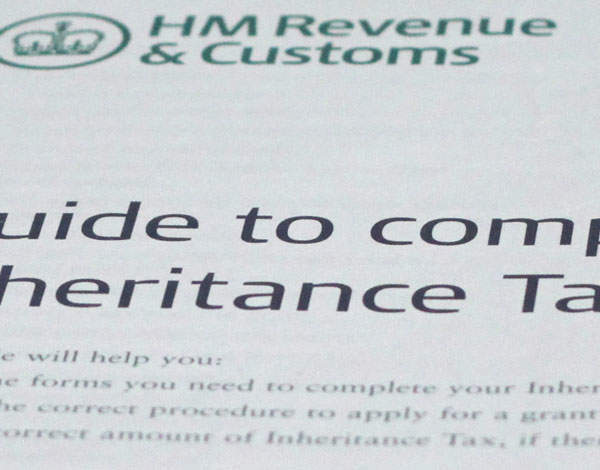

Chartered accountants UHY Hacker Young have produced a report stating that the UK has the second highest rate of inheritance tax in the world, after Ireland. What are the implications of this staggering figure?
This rate has negative consequences for the UK. Not only are assets, properties and heirlooms being prevented from passing down through generations but people are discouraged from adding to their wealth due to big inheritance tax bills. This is damaging to the economy – less capital is available for future generations to fund new businesses, investment and entrepreneurship.
Inheritance tax is paid on an estate when somebody has died. It can also be payable on trusts and lifetime gifts. Each estate has a £325,000 threshold on which no inheritance tax is payable on. There is no inheritance tax payable on anything you leave to your spouse or civil partner. Indeed, when the second partner dies, any of the remaining £325,000 threshold of the first partner to die passes to the other. Tax is paid on everything over this threshold at 40 per cent or 36 per cent should 10 per cent of the estate be left to charity.
The report states that the global average inheritance tax payable is 7.67 per cent on an estate of $3 million compared to the UK where the government would typically take more than three times that amount. Furthermore, the UK figure is only on surviving spouses’ or civil partners’ estates where the doubling of the £325,000 threshold is available. If the individual has never been married then the typical rate is 32.9 per cent. Contrast this figure with the European average of 15 per cent.
Half of all inheritance tax is paid in London and the South East. The inheritance tax threshold has not risen in line with property prices. It has been frozen since 2009 and is well below the average London house price of £409,881. This can prevent families from being able to pass their home down through the generations. In order to pay any inheritance tax bill that arises on the family home, your children may have to sell it. Millions more estates are becoming liable to inheritance tax due to rising house prices and people are getting caught by a tax which was only meant to effect the really wealthy.
David Cameron has said that being able to leave things to your children will ‘build a stronger society’.
If your major asset is your home, for example, worth £1 million and any additional assets you own you require to live off, there are options for inheritance tax planning, but these will be limited for the ‘ordinarily wealthy’. That said, if you are ‘extraordinarily wealthy’ with your major asset not being your home, you are likely to feel less of an effect. You can more effectively tax plan by giving assets that you don’t require away in your lifetime and arrange your assets in such a way that it will lessen the impact of the inheritance tax. However, some of the ‘extraordinarily wealthy’ are finding that their assets are rising in value so quickly that they cannot give them away fast enough.
Less capital, which traditionally has been used for entrepreneurship and funding new businesses, is being passed on to younger generations. This could have longer term effects on the economy. This is why a number of other developed countries, such as Australia and New Zealand, and many emerging economies impose no inheritance tax whatsoever. They argue this is to encourage the creation of wealth.
The £325,000 threshold is frozen at it’s current level until the 2017/2018 tax year. The Conservatives have said they will raise the £325,000 threshold to £1 million at the next election. However, this tax cut is in competition with others such as raising the threshold at which 40 per cent income tax is payable and capital gains tax.
With the inheritance tax threshold set at its current level some of the options available to minimise your inheritance tax liability include insurance which goes some way to covering your inheritance tax liability on your death, investments in businesses or agricultural property which enjoy 100 per cent relief or by gifting your capital and assets in your lifetime. You should seek specialist advice before embarking on any of these potentially tax saving devices.
John Toth is a partner at Ashfords LLP and Hannah Batten is a solicitor at Ashfords LLP






